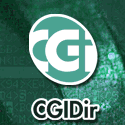|
|
|||||||||||||||||||||||||
|
|||||||||||||||||||||||||
|
Search
Scripts
News by JavaScriptSearch
W3C Publishes New Editions of Core XML Standards
JavaScriptSearch W3C published new editions of the XML 1.0/1.1 and Namespaces in XML 1.0/1.1 specifications for data exchange that include corrections for all known errata. W3C said that the strong foundation provided by the stability of these core XML specifications underlies the steady increase in W3C-defined technologies for querying, transforming, displaying, encrypting, and optimizing XML.
XML is used to exchange information in many domains and scenarios. VoiceXML, MathML, SVG, RSS, Web3D, RDF/XML, XMP, XUL, SOAP, AJAX, and Jabber/XMPP are just a few XML-based technologies. Popular productivity suites such as Microsoft Office and OpenOffice use XML. XML is cited by an increasing number of specifications, including ISO specifications. Why has XML been so successful? To start, it is a structured text format that is easily processed by computers, but also by humans, who can "view the source" and take inspiration from it or debug it with readily available tools. XML thus simplifies the tasks of creating and maintaining software. As a platform-independent open standard that supports efficient parsing, XML was quickly supported in libraries for popular programming languages (including Java, C#, Python, Perl, and C) and subsequently in free and open source applications. W3C appreciates the active discussion forums about XML such as xml-dev, which have helped improve and propagate the standards. The global adoption of XML was further enabled by its support for internationalization; XML 1.1 extends and simplifies XML 1.0's support for users from around the world. The XML family of technologies (including XSLT, XML Schema, SAX, Document Object Model (DOM), and XML Signature/ Encryption) constitute a complete and economical toolkit for data management, contributing further to its success. W3C said it is strongly committed to the future of XML. By the end of 2006, W3C expects to publish W3C Recommendations for XML Query 1.0 and XSLT 2.0. W3C is revising XML Schema, heavily used in SOAP-based Web services, and planning additions to XML Query beyond the 1.0 version. The XML Processing Model Working Group will soon publish the first draft of an XML language for specifying sequences of operations on XML documents, such as transformation, validation, inclusion and decryption, based on existing XML pipeline products and free and open source designs.
Generic compression techniques can be applied to XML documents, but a
number of XML-specific technologies for improving the efficiency of XML
storage, transmission and processing have been developed. W3C has
chartered a Working Group on Efficient XML Interchange to expand the
outreach of XML into further domains that require even greater
performance and additional capabilities such as streaming.
|
||
|
|
|
|
| Copyright © 1998 - 2018 DevStart, Inc. All Rights Reserved | ||




 NEWS BY MONTH
NEWS BY MONTH EDITOR'S DESK
EDITOR'S DESK SUBMIT NEWS
SUBMIT NEWS

